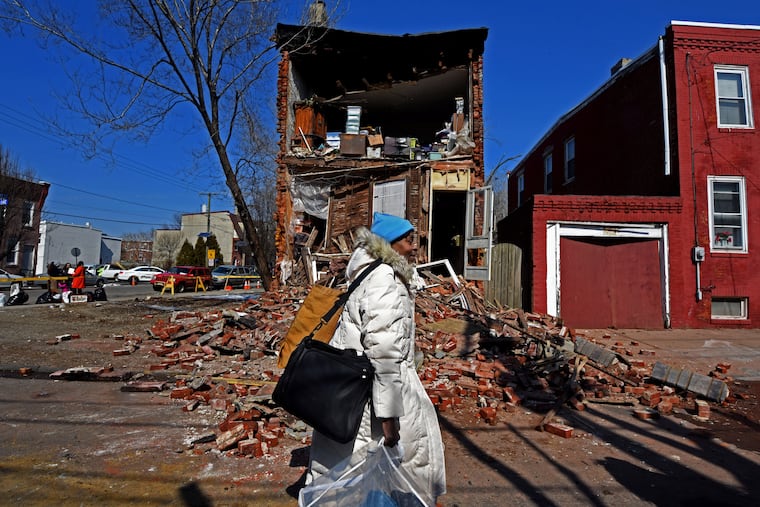When lawmakers discuss Camden, I hear the same tropes used to justify interventions around the globe
The public policy that facilitated the eight-year takeover of Camden’s municipal government from 2002 to 2010 was fueled by the belief that Black and brown people are incapable of self-determination.

In 1995, New Jersey Gov. Christine Todd Whitman considered taking control of specified functions within Camden municipal government. Understandably, she was concerned about a lack of resident buy-in. However, an editorial in the Courier-Post urged Gov. Whitman to press forward, saying:
“Gov Whitman, perhaps, is reluctant to take over the entire city ... because some may call her racist; however, she shouldn’t care. Pulling the race card without cause is what desperate people do when they can’t defend themselves with facts.”
Words like these justify the rationale for states to take over cities like Camden — a city that is made up primarily of Black and Latino residents — to achieve or maintain public safety and fiscal solvency while spurring economic development and revitalizing an area’s social and political engagement.
Words like these are fueled by the belief that Black and brown people are incapable of self-determination due to their incompetence in managing the day-to-day affairs of city life. If words like these sound similar to the reasons our nation uses as justification for intervening in the affairs of foreign nations, that’s because they are similar.
The U.S. uses phrases like “failed states,” “responsibility to protect,” or “humanitarian interventions” as a rationale for intervening in the affairs of Black nations in Africa and the Caribbean. Such thinking is emblematic of the kind of Western imperialism that leads to colonization, exploitation, and extraction.
It is a philosophy crystallized in public policy that facilitated the eight-year takeover of Camden’s municipal government from 2002 to 2010, the dissolution of the city’s police department in 2013 and its merger with county law enforcement, and Trenton control of the school district, which started in 2013 and continues to this day.
The colonization of Camden wasn’t a matter of Republican or Democratic politics. It was a matter of controlling the resources and the right to self-determination of Black and brown people.
How did we get here? It didn’t happen because of an influx of Black and brown people, which began in earnest with the Great Migration — the exodus of Black Americans from the South to cities in the Northeast and elsewhere during the 1940s and ‘50s. Rather, it was deindustrialization and white flight, which created the bleak fiscal realities that landed the city in perpetual deficits. What followed were financially driven decisions that became a prison, a sewage plant, a garbage incinerator, and tax incentives for corporations to attract businesses to Camden.
The results: the prison, while no longer here, was a waste of community space; the plant and incinerator fill the air with cancer-causing pollutants; corporate tax incentives have yielded few jobs for residents.
The Camden County Police Department is under the authority of the Camden County Commissioners. According to the New Jersey Supreme Court, the decision to change policing in Camden was done illegally. As a result, a city of 96% Black and Latino residents has their voting power over who controls its police department diluted by county residents, who are 54% white.
The takeover of public schools means residents are without governing control of their schools. The school board, although an elected board, is an advisory board. The state of New Jersey has the final say, over the board and the superintendent, on educational decisions in Camden.
Colonization is tyranny and only breeds mistrust, resentment, and indifference.
As the city lost control of its government, police, and schools, some residents and city stakeholders saw the centralization of city institutions and administrative functions as an opportunity to gain needed resources for the community and a seat at the table.
But colonization is tyranny and only breeds mistrust, resentment, and indifference. Sadly, this is part of Camden’s history since the turn of the century: mistrust, resentment, and indifference.
But there is something else that colonization breeds: resistance.
Resistance is residents suing to regain voting power of the school district advisory board. It’s the teachers’ union president marching on foot from Camden to Trenton to prevent public schools from being closed. It’s pressuring county police to change their policing from a “broken windows” approach to using de-escalation tactics.
Takeovers begin to look different when the people of the city — not the politicians, corporate executives, or bureaucrats — fight with clarity and understand who the opposition to their humanity is. The result isn’t a reformed takeover model or a reformed colonization or a reformed occupation. Rather, it is self-empowerment, it is self-determination, it is liberation.
Rann Miller is an author, educator, and freelance opinion columnist.